

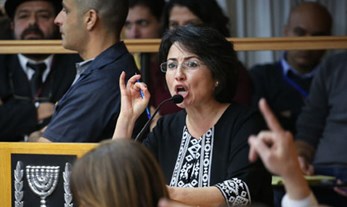
Disqualifying Zoabi: Bad for Security and Bad for Democracy
Written By: Admiral (Res.) Amichay (Ami) Ayalon
As the Central Elections Committee begins to debate disqualifying MK Hanin Zoabi and others from running for Knesset, IDI Senior Fellow Ami Ayalon writes that as distasteful as some of her words may be, banning Zoabi from running would be a victory for Israel's detractors.

Israel's Central Elections Committee: Political Cabal or Independent Agency?
Written By: Dr. Dana Blander
IDI Researcher Dr. Dana Blander discusses the role of Israel's Central Election Committee and asserts that change is needed in its structure, composition, and working methods.
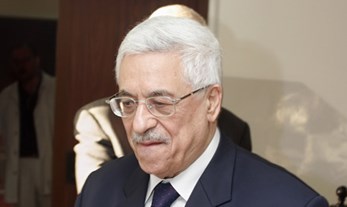
The Palestinian Authority and the International Criminal Court
Written By: Prof. Amichai Cohen, Adv. Tal Mimran
A discussion of the Palestinian Authority's declarations to the International Criminal Court (ICC), the changes that influenced the ICC prosecutor's decision to accept the PA's second declaration, and the conditions that must be fulfilled in order for the ICC to apply its jurisdiction to IDF actions or to the settlement enterprise.

The Electoral Threshold, Wasted Votes, and Proportionality
Written By: Prof. Ofer Kenig
In the upcoming elections, the electoral threshold will be 3.25%, a big leap from the last elections. Will this higher hurdle deter voters from supporting small parties? Will it reduce the share of wasted votes? What impact will it have on the proportional nature of the electoral system?

Shemitat Kesafim: The Year of Escape from Debt
Written By: Prof. Benjamin Porat
Dr. Benny Porat discusses the precept of debt cancellation during the sabbatical year (Shemita) and proposes ways in which to update this practice to suit the economics of contemporary Israel and create a model society.
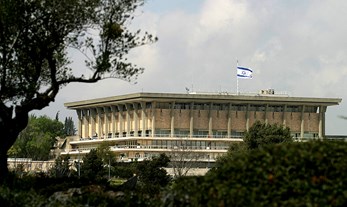
23 Knesset Seats is Not a Victory
Written By: Yehoshua Oz
In an op-ed in the Jerusalem Post, Yehoshua Oz, IDI's Director of International Communications, argues that pundits eager to crown a victor in the 2015 elections have lost sight of the fact that winning one-fifth of the Knesset seats is no victory.
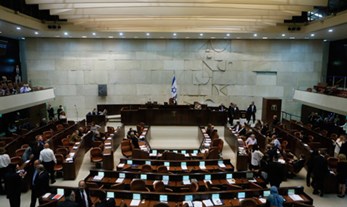
How to Prevent the Recurrence of Early Knesset Elections
Written By: Yohanan Plesner
IDI President Yohanan Plesner recommends a change of approach and some practical steps for changing the reality in which the Israeli public repeatedly goes to the polls to elect a new Knesset before the previous Knesset has finished its term.

The Firing of Ministers in Israel: A Historical Overview
Written By: Prof. Ofer Kenig
The demise of the 19th Knesset was hastened by Prime Minister Benjamin Netanyahu's firing of Finance Minister Yair Lapid and Justice Minister Tzipi Livni. In the article below, IDI researcher Dr. Ofer Kenig discusses the various grounds for firing ministers in the past and how the current case fits into Israeli political practice.
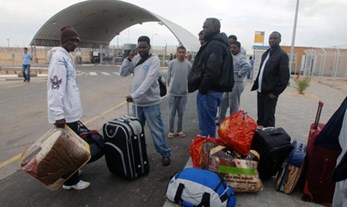
Detention of African Asylum Seekers in Israel: Welcome to Round Three
Written By: Prof. Reuven (Ruvi) Ziegler
On December 8, 2014, just before the Knesset dissolved itself to prepare for early elections, it enacted the Law for Prevention of Infiltration and Ensuring the Departure of Infiltrators from Israel. IDI's Dr. Reuven (Ruvi) Ziegler reviews this development.

Democracy: The Key Election Issue
Written By: Prof. Mordechai Kremnitzer
In an op-ed in Maariv, IDI Vice President Prof. Mordechai Kremnitzer calls for an election campaign that focuses not only on foreign policy and Israel's social gap, but on the nature of Israeli identity and the value of Israeli democracy itself.
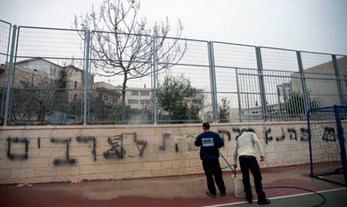
A Four-Step Plan to Combat Hatred between Jews and Arabs in Israel
Written By: Yair Sheleg
IDI Research Fellow Yair Sheleg outlines four steps that can allay fears, contribute to dialogue, combat hatred, and improve relations between Jews and Arabs in Israel

Banning Arab Workers: A Hypocritical Condemnation
Written By: Dr. Amir Fuchs
The mayor of Ashkelon's announcement following the massacre in a Har Nof synagogue that Arab workers would not be employed in his city was roundly condemned by members of the Knesset. Dr. Amir Fuchs points to the hypocrisy of these condemnations.

A Ready Alternative to the Nation State Law
Written By: Dr. Amir Fuchs
IDI researcher Dr. Amir Fuchs criticizes the proposed Basic Law that would establish Israel as the nation state of the Jewish people and recommends accepting Israel's Declaration of Independence as the preamble to Israel's future Constitution instead.

10 Reasons Why Even People Who are Appalled by Israel Hayom Should Oppose Legislation against It
Written By: Hanoch Marmari
Hanoch Marmari, former editor of Haaretz and current editor of The Seventh Eye, an independent on-line journal dedicated to critique of the media, defends <em>Israel Hayom</em>'s right to exist as a free newspaper, notwithstanding his professional qualms about the quality of its journalism.

10 Reasons Why Even People Who are Appalled by Israel Hayom Should Oppose Legislation against It
Written By: Hanoch Marmari
In the lines below, Hanoch Marmari, former editor of Haaretz and current editor of The Seventh Eye, an independent on-line journal dedicated to critique of the media, defends <em>Israel Hayom</em>'s right to exist as a free newspaper, notwithstanding his professional qualms about the quality of its journalism.

Legal Opinion on the Israel Hayom Law
Written By: Prof. Mordechai Kremnitzer, Dr. Tehilla Shwartz Altshuler
A summary of a legal opinion opposing the "Law for the Advancement and Protection of Print Journalism in Israel," which would prohibit the distribution of a full-sized daily newspaper in Israel free of charge.

Legal Opinion on the "Zoabi Bill"
Written By: Prof. Mordechai Kremnitzer, Dr. Amir Fuchs
A summary of a legal opinion on a proposed amendment to Basic Law: The Knesset that was submitted by Prof. Mordechai Kremnitzer and Dr. Amir Fuchs to the Ministerial Committee on Legislative Affairs.
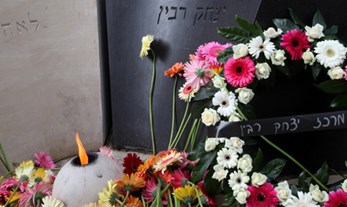
Confronting the Rabin Assassination
Written By: Prof. Mordechai Kremnitzer
Nineteen years after the murder of Prime Minister Yitzhak Rabin, IDI Vice President Prof. Mordechai Kremnitzer explores the background, meaning, and ramifications of this event, taking a hard look at some of the dangers he sees in Israeli society today.

Is There a Place for God in the Israeli Army?
Written By: Prof. Yedidia Z. Stern
In an article in the <em>Jewish Week</em>, IDI Vice President Yedidia Stern discusses the question of whether it is appropriate for commanders to use religious rhetoric in motivating their soldiers, and stresses the need for the Israeli army to represent all.
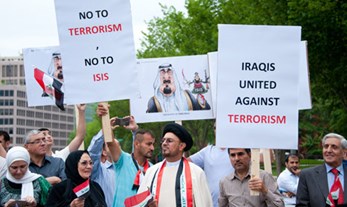
The (Legal) Battle against the Islamic State
Written By: Prof. Amichai Cohen, Adv. Tal Mimran, Prof. Yuval Shany
Three IDI experts on terrorism and democracy discuss the key points of the UN Security Council resolution that condemns the abuse of human rights by the Islamic State, and note two points that they believe are missing from the resolution.

When November 4th Meets the 12th of Heshvan
Written By: Yitzhak Ben David
Rabbi Yitzhak Ben David shares thoughts on the alignment of the Memorial Day for Yitzhak Rabin on the Gregorian and Hebrew calendars, which challenges us to find a renewed reconciliation between Israeli democracy and Jewish civilization.
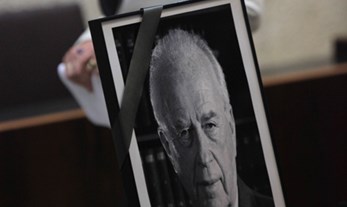
Joining Together to Remember Yitzhak Rabin
Written By: Benjamin (Benny) Lau
On the 19th anniversary of the Rabin assassination, Rabbi Dr. Benjamin (Benny) Lau, head of IDI's Human Rights and Judaism in Action project, looks at the youth of Israel and shares a vision of hope.
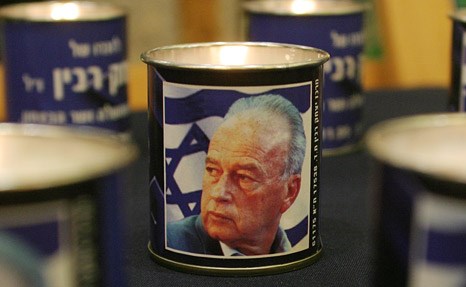
Israeli Democracy Day: Yitzhak Rabin's Legacy for the Future
Written By: Prof. Yedidia Z. Stern
On the 19th anniversary of the assassination of Yitzhak Rabin, Prof. Yedidia Stern asserts that if the annual memorial day for the late prime minister were to be observed as Israeli Democracy Day, Rabin's legacy for the future would be even greater.
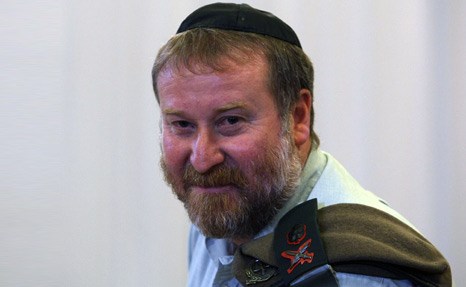
Adviser or Prosecutor? Israel's Attorney General Can't be Both
Written By: Prof. Yedidia Z. Stern
IDI Vice President Yedidia Stern asserts that there is a conflict of interest between the Attorney General’s two functions—as State Attorney and State Prosecutor—and the office must be split in two.
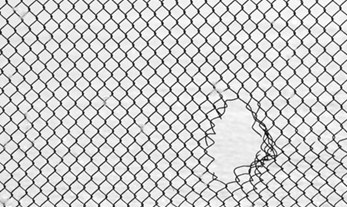
Overriding the Supreme Court: A Breach in the Wall of Democracy
Written By: Dr. Amir Fuchs
Dr. Amir Fuchs discusses the proposal to add an override clause to Israel's Basic Law: Human Dignity and Freedom that would enable the Knesset to bypass the High Court and deal a a severe blow to the main safeguard of human rights and minorities in Israel.

The IDF’s Fighting Ethos in the Wake of Operation Protective Edge
Written By: Yohanan Plesner
IDI President Yohanan Plesner stresses the need to ensure that the Israel Defense Forces remains at the heart of the Zionist consensus so as to enable it to continue to be the army of all citizens of Israel.

Transparency in Local Authority Budgets
Written By: Dr. Tehilla Shwartz Altshuler
Dr. Tehilla Shwartz Altshuler discusses the challenges to transparency in the budgets of Israel's local authorities, including the need to make budgets accessible, to enable searches within budgets, and to facilitate comparisons between the budgets of different authorities.
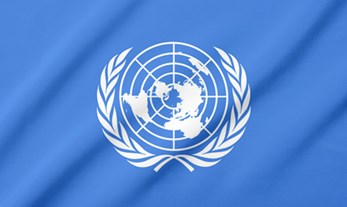
A Betrayal of International Law
Written By: Prof. Mordechai Kremnitzer
In a Jerusalem Post op-ed, Prof. Mordechai Kremnitzer argues that by breaching their responsibility to be impartial, the UN Human Rights Council and its commission for investigating alleged war crimes in Gaza are betraying international law, even if unintentionally.
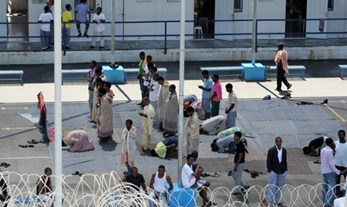
Second Strike and You Are (Finally) Out? The Quashing of the Prevention of Infiltration Law (Amendment No. 4)
Written By: Prof. Reuven (Ruvi) Ziegler
IDI Researcher Dr. Reuven (Ruvi) Ziegler presents a brief overview of the Israeli High Court of Justice's decision to strike down Amendment No. 4 of the Prevention of Infiltration Law, and explores several themes that may be of comparative constitutional interest.
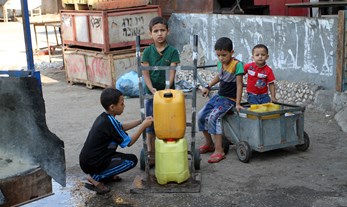
The Admissions Committees Ruling: A Lack of Ripeness or Refusal to Decide?
Written By: Dr. Amir Fuchs
Dr. Amir Fuchs discusses the Israeli High Court of Justice's decision to uphold the "Admissions Committees Law," which allows small communities to reject applicants due to a lack of social suitability.

